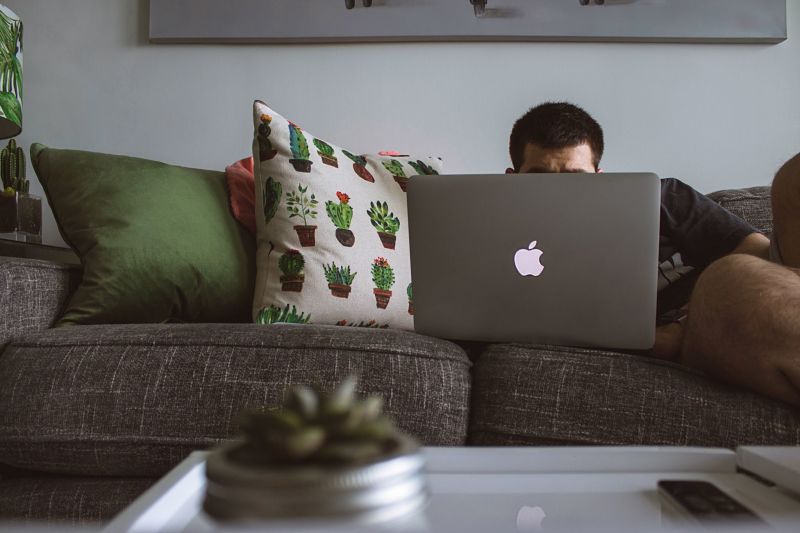
How to switch off from work
Only one-third of Brits are happy with our work-life balance. Whilst of course this means we need to consider things such as the length of our working day, we also need to consider how to switch off from work. In the digital age, with a smart phone in our palm and our emails at easy access, the ‘task’ of relaxing time after work is made even more difficult. Whatever the root cause of your problems switching off from work, we’ve got ideas of ways you improve your work-life balance, without considering a career change.
Manage your digital tools
Your smartphone, your laptop and tablet are there to facilitate an easier life both personally and professionally. However, they allow the lines to become blurred. If you have devices which you use for both work and home needs, then you’re going to find it hard to switch off from work at home.
One solution is to retain different devices for the different aspects of your life. Whilst your role may make it impossible to leave work on your desk entirely, by having different devices you can certainly carve out some work-free hours.
This is perhaps even more important, the more senior you are as you may feel that your responsibilities mean you can’t “switch off”. Many people struggle with this, especially people in management positions but you should lead by example, showing that a work-life balance is essential for happy productive staff and mental health. Show that you respect their home life by only contacting them in an emergency out of working hours.
Additionally, use the digital tools you have at your fingertips. It may be beneficial to switch off push notifications and set do not disturb hours on your devices.
Be firm with your boundaries
Combined with how contactable you are, there’s an increasing need for workers to be firm with their own boundaries. Unfortunately, if you regularly work late then it can quickly become difficult to stop thinking about work. Instead, be firm with knowing what you are prepared to give which doesn’t compromise your free time without any balance.
This is particularly important for those 4.59pm emails, or a ringing phone whilst you’re putting your coat on! When chancers realise you’re firm with your boundaries, they will likely become better at their own time management. Additionally, if you choose to arrive early to bring calm to your working day, don’t let others start infringing on that.
Touch base then move on
Of course, you may want to offload your day in a chat with your partner and keep them in the loop. However, try to minimise the work talk that you allow over your own threshold. Set the basic rule that you’ll have a quick work chat and then move on.
Be mindful
Consider following ways to boost your mental health, including mindfulness. You can find ways to boost your mindfulness in our resource centre. Mindfulness is a fantastic tool for switching off from work. This is because its fundamental premise is that you are bringing your attention repeatedly back to the here and now. Therefore, if you practise mindfulness on your commute, or shortly after you arrive home, you’re actively enabling your mind to switch off.
Have a home routine, all the way to bedtime
We’re creatures of habit. Therefore, if we get into the habit of checking work emails at home, that habit will be hard to kick. On the other hand, get into the habit of a home routine focused on such things as exercise, mealtimes and relaxation and you’ll find it easier to switch into ‘home mode’.
This is particularly vital when it comes to bedtime. Be strict with a wind down routine and banish work from your sleep routine.
Practice acceptance
The problem with many roles is that it’s incredibly difficult to find the off button. You can always do more. There’s rarely a point when you can say “yes, everything is done”. Realising this, and accepting this, can allow you to draw a line to separate home and work. Knowing that there is always something you can ‘do’ can help you step off the treadmill to restore some balance.
What’s more is you will go back to work the next day refreshed and ready to be more productive.
Use lists
On the same idea, what can you do with this sense that there’s always more to do? Use lists. By listing what remains to be done, you can quickly pick up tasks again the next day. Using lists allows you to organise work more appropriately and define what happens within the working day.
For the same reason, if you’re at home and something work-related pops in to your mind, write it down. Park it until tomorrow.
Use exercise and hobbies
If you’re really struggling to switch off from work, then upping your exercise and hobbies can help. By diverting your energy in to other pursuits, you will boost the feel-good factor and help your mind and body overall.
For the same reason, getting out in the fresh air or listening to music can do wonders to shift the gears in your mind. Head out for a post-work walk to switch off.
Eat well
It’s easy to recognise that your work-life balance needs some attention when you’re wolfing down convenience foods and snacks rather than eating well. Taking the time to prepare good fresh food each evening can help you transition from work into focusing on yourself and your wellbeing. Cooking is diverting enough to keep your attention away from work, but not so taxing that it causes problems itself.
Similarly, whilst reaching for a glass of wine may be your usual go-to de-stress technique, it’s not always what’s best for you overall. Alcohol is a depressant and can leave you ruminating about work stress rather than reducing stress.
Understand some things about productivity
Lastly, it may be tempting to get through your pile of work with all you’ve got, but don’t do it in the belief you’ll get more done. The opposite is true. To be truly productive, you need to be well-rested and refreshed. That is only possible if you’ve worked out how to switch off from work. Then you return to the workplace each day energised and ready to give 100%. You’ll get more done, efficiently, if you ensure you know how to switch off from work.


